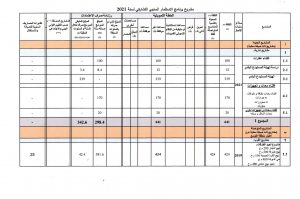All tenants’ security deposits should have a ledger account for balance, transactions, and dates. Security deposits must be reported per trust fund rules and held in a separate account from your operating account. Check your bank statements and security deposit ledger regularly and report discrepancies. Rental income monitoring is crucial for financial stability and property management success. Different systems and tools can help property managers track rental income. Programs like Excel, Numbers, Google Sheets, and OpenOffice can be used to create a basic real estate bookkeeping system to track income and expenses.

Streamline Your Accounting in Real Estate
Find bookkeepers that are similar in your skill set and experience to help gauge what you should be charging. Many clients will look for your website to find out about you and your experience. If you’re specifically https://www.bookstime.com/real-estate-bookkeeping running a totally virtual business, a website is extra important since it can demonstrate to clients your skills. And luckily, there are plenty of website builders to make creating your website a breeze.
Marketing Expenses
Here, we will discuss the details of bookkeeping for real estate agents and the different accounting procedures, methods, and bookkeeping practices that work for them. Property management involves overseeing https://www.bookstime.com/ the day-to-day operations of a rental property, including repairs, tenant communication, and lease enforcement. Effective property management can help increase property value and attract quality tenants.
Informed decision-making
- As a detail-oriented professional, you would play a crucial role in the organization and growth of companies from small businesses to major corporations.
- Our services allow you to increase productivity with the freedom to manage your community and focus on daily operations.
- Proper training and awareness sessions can further ensure that all team members are aligned with these regulations.
- Sandra Habiger is a Chartered Professional Accountant with a Bachelor’s Degree in Business Administration from the University of Washington.
Ultimately, accurate transaction oversight ensures that financial statements reflect the true financial position of a property. Advanced software solutions offer features for data security, ensuring stakeholder trust. Accurate data security drives stakeholder trust and business success.

Ensuring Accurate Financial Data
Advanced software solutions offer features for ensuring full disclosure. Regular reviews ensure that financial statements remain transparent. Accurate disclosure ensures that stakeholders can make informed decisions based on comprehensive financial data. Regular reviews ensure that petty cash expenditures are tracked accurately. For real estate professionals, tracking petty cash expenditures is crucial.
For real estate professionals, profitability analysis is a core skill. Accurate analysis ensures that businesses can assess their financial performance effectively. It’s a vital aspect of successful real estate accounting that supports informed decision-making.

Ultimately, accurate categorization is foundational for clear financial reporting and analysis. Tax planning sessions offer insights into tax optimization strategies. Participating in these sessions ensures that businesses remain updated on tax regulations. Regular reviews ensure that businesses leverage tax planning effectively. Accurate tax planning ensures that businesses optimize their tax strategies and remain compliant.
The Role of Dedicated Bookkeeping in a Successful Real Estate Business
By refining practices and embracing technology, real estate professionals can achieve greater accuracy and efficiency. This section delves into strategies to enhance accounting processes. By implementing these strategies, real estate businesses can foster growth and stakeholder trust.
This method offers a more accurate picture of a property’s financial health. Understanding accrual accounting is foundational for real estate professionals aiming for accurate financial reporting. Real estate accounting is a specialized branch of accounting tailored to the property sector. It encompasses the tracking, analyzing, and reporting of financial transactions related to properties. This discipline is crucial for property owners, investors, and managers to ensure transparency and profitability. With technological advancements, modern tools have revolutionized traditional accounting practices in the real estate sector.

 العربية
العربية


